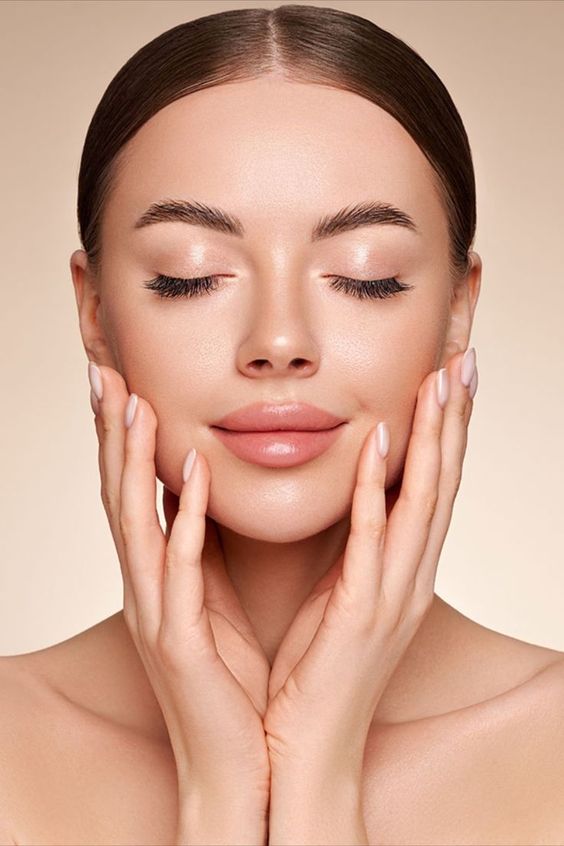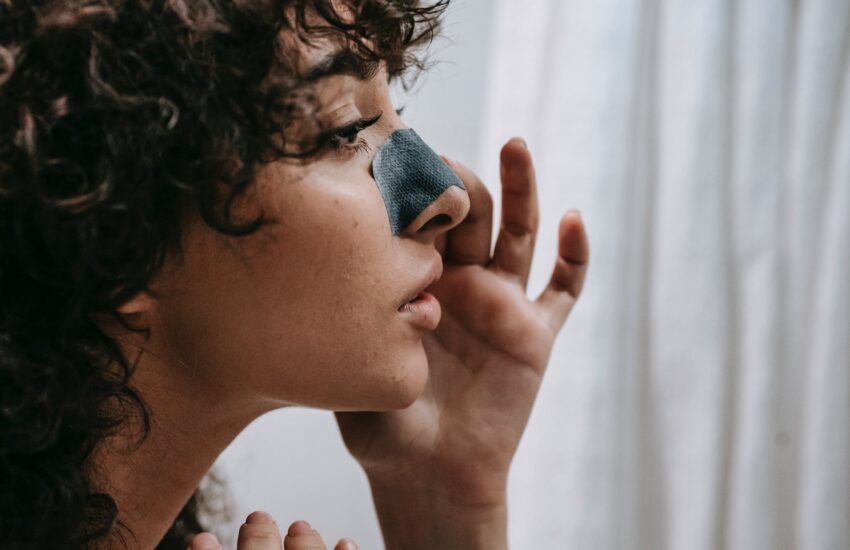7 Best Home Remedies For Oily Skin
To manage oily skin, try using natural remedies like lemon juice and honey masks. Aloe vera and clay masks also help.
Oily skin can be a persistent issue that requires consistent care. Excess oil can lead to acne and clogged pores. Natural remedies offer a cost-effective and gentle way to manage oily skin. Ingredients like lemon juice have astringent properties that tighten pores and reduce oil.
Honey, known for its antibacterial properties, can help prevent breakouts. Aloe vera soothes the skin while controlling oil production. Clay masks, especially those containing bentonite or kaolin, absorb excess oil and impurities. These home remedies are easy to incorporate into your skincare routine and offer a natural solution to maintaining a balanced complexion. Let’s know more about those Best Home Remedies For Oily Skin. 
Natural Ingredients
Struggling with oily skin can be a hassle. Many turn to natural ingredients for relief. These remedies are often safer and more effective. They help balance the skin’s natural oils. Let’s explore some of the best natural ingredients for oily skin.
Aloe Vera Benefits
Aloe vera is a popular choice for oily skin. It is known for its soothing properties. Aloe vera gel can help reduce excess oil. It also provides a cooling effect. Here are some key benefits of aloe vera for oily skin:
- Reduces inflammation: Aloe vera contains anti-inflammatory properties. It helps calm irritated skin.
- Hydrates without clogging pores: Aloe vera is a natural moisturizer. It hydrates the skin without making it greasy.
- Antibacterial properties: Aloe vera helps fight acne-causing bacteria.
- Rich in vitamins: Aloe vera contains vitamins A, C, and E. These vitamins nourish the skin and promote healing.
You can use aloe vera gel directly from the plant. Apply a thin layer to your face. Leave it on for 15-20 minutes. Rinse with lukewarm water. Repeat daily for best results.
Honey As A Moisturizer
Honey is another fantastic natural ingredient for oily skin. It has excellent moisturizing properties. Honey can help balance the skin’s natural oils. Here are some benefits of using honey as a moisturizer:
- Natural humectant: Honey attracts moisture from the air. It keeps your skin hydrated and soft.
- Antibacterial and antiseptic properties: Honey helps prevent acne by keeping your skin clean.
- Rich in antioxidants: Honey contains antioxidants that protect the skin from damage.
- Soothes and heals: Honey helps soothe irritated skin. It also promotes healing of blemishes and scars.
To use honey as a moisturizer, apply a thin layer to your face. Leave it on for 10-15 minutes. Rinse with warm water. You can use honey daily for glowing skin. It’s an easy and effective remedy for oily skin.
Cleansing Techniques
Oily skin can be a challenge, but with the right home remedies, you can keep it under control. Cleansing techniques play a crucial role in managing oily skin by removing excess sebum and preventing clogged pores. Let’s explore some effective methods to cleanse oily skin.
Gentle Exfoliation
Exfoliating is essential to remove dead skin cells and prevent clogged pores. For oily skin, it’s important to use gentle exfoliants that won’t strip the skin of its natural oils. Here are some effective methods:
- Oatmeal Scrub: Mix ground oatmeal with water to form a paste. Gently massage it onto your face in circular motions. Rinse with lukewarm water.
- Sugar Scrub: Combine sugar with honey to create a natural scrub. Rub it on your face, focusing on oily areas. Rinse thoroughly.
- Baking Soda: Mix baking soda with water to make a paste. Apply to your face and scrub gently. Wash off with warm water.
Exfoliating 2-3 times a week can keep your skin smooth and clear without over-drying. Always follow up with a light moisturizer to maintain balance.
Using Clay Masks
Clay masks are excellent for absorbing excess oil and purifying the skin. Different types of clay offer various benefits:
| Type of Clay | Benefits |
|---|---|
| Bentonite Clay | Draws out impurities and tightens pores |
| Kaolin Clay | Gentle on the skin, reduces oiliness |
| French Green Clay | Detoxifies and exfoliates |
To use a clay mask, follow these steps:
- Mix the clay powder with water or apple cider vinegar to form a paste.
- Apply the paste evenly on your face, avoiding the eye area.
- Let it sit for 10-15 minutes until it dries.
- Rinse off with lukewarm water and pat your face dry.
Applying a clay mask once a week can help maintain a healthy, oil-free complexion. Your skin will feel refreshed and balanced.
Dietary Changes
Struggling with oily skin can be frustrating. While external treatments can help, making dietary changes can have a significant impact. What you eat affects your skin’s health. Let’s explore how tweaking your diet can help manage oily skin.
Hydration Importance
Hydration plays a crucial role in maintaining healthy skin. Drinking enough water helps regulate oil production. When your skin is properly hydrated, it doesn’t need to produce as much oil to stay moisturized. This reduces the oily sheen on your face.
Here are some tips to stay hydrated:
- Drink at least 8 glasses of water daily.
- Incorporate hydrating foods like cucumbers and watermelon into your diet.
- Avoid sugary drinks and sodas; they can dehydrate your skin.
Consider this simple table of hydrating foods:
| Food | Water Content (%) |
|---|---|
| Cucumber | 95% |
| Watermelon | 92% |
| Strawberries | 91% |
| Oranges | 86% |
Maintaining proper hydration keeps your skin looking fresh and less oily. So, remember to drink water and eat hydrating foods regularly.
Foods To Avoid
Some foods can exacerbate oily skin. Avoiding these foods can help manage oil production. Here are some foods to steer clear of:
- Fried Foods: These are high in unhealthy fats that can increase oil production.
- Sugary Foods: Excess sugar can lead to inflammation and more oil production.
- Dairy Products: Milk and cheese can increase sebum production, making skin oily.
- Processed Foods: They contain preservatives and unhealthy fats that can affect your skin negatively.
Here’s a table of foods to avoid:
| Food | Reason |
|---|---|
| Fried Chicken | High in unhealthy fats |
| Candy | Excess sugar |
| Cheese | Increases sebum production |
| Chips | Contains preservatives |
By avoiding these foods, you can help keep your skin less oily. Choose healthier options for a noticeable difference in your skin’s oil levels.
Also Read: Blackheads On Nose! Let’s Reveal the Secret Magic of Baking Soda and Look Gorgeous!
Essential Oils
Struggling with oily skin? Essential oils can be a game-changer. These natural oils not only balance sebum production but also nourish your skin. Let’s dive into two fantastic options: Tea Tree Oil and Lavender Oil.

Tea Tree Oil
Tea Tree Oil is a powerhouse for oily skin. Its antimicrobial properties make it perfect for treating acne-prone skin. It helps to unclog pores and reduce inflammation.
How to use Tea Tree Oil:
- Mix a few drops with a carrier oil like jojoba or almond oil.
- Apply it to your face using a cotton pad.
- Leave it on for 15-20 minutes, then rinse off with lukewarm water.
Benefits of Tea Tree Oil:
| Benefit | Description |
|---|---|
| Reduces Acne | Its antibacterial properties kill acne-causing bacteria. |
| Controls Oil | Regulates sebum production, preventing excess oil. |
| Soothes Skin | Reduces redness and irritation. |
Lavender Oil
Lavender Oil is another excellent choice for oily skin. Its calming effects make it suitable for sensitive skin types. It helps balance the skin’s natural oil production.
How to use Lavender Oil:
- Add a few drops to your daily moisturizer.
- Mix it with a carrier oil for a soothing face massage.
- Use it in a steam facial to open pores and reduce oiliness.
Benefits of Lavender Oil:
| Benefit | Description |
|---|---|
| Balances Oil | Helps regulate excess oil production. |
| Heals Acne | Anti-inflammatory properties reduce acne and scarring. |
| Calms Skin | Reduces redness and soothes irritation. |
Herbal Remedies
Oily skin can be a challenge, but herbal remedies offer a natural way to manage it. These remedies are gentle, effective, and can help balance the skin’s oil production. Two powerful herbal options are green tea and witch hazel. Let’s explore their benefits and uses.
Read More: 9 Fall Wellness and Skin Tips : Healthy Skin Care Tips for Fall.
Green Tea Benefits
Green tea is known for its amazing benefits for oily skin. It is rich in antioxidants that help reduce inflammation and fight free radicals. Green tea also contains tannins, which can shrink pores and reduce oil production. 
Here are some key benefits of green tea for oily skin:
- Reduces Sebum Production: Green tea can decrease the amount of sebum your skin produces, helping to keep it less oily.
- Anti-Inflammatory Properties: It soothes the skin, reducing redness and irritation.
- Antioxidant-Rich: Protects the skin from damage caused by environmental pollutants.
To use green tea for oily skin, you can make a simple toner:
| Ingredient | Quantity |
|---|---|
| Green Tea Bags | 2 |
| Boiling Water | 1 cup |
Brew the tea bags in boiling water for 5 minutes. Let it cool, then apply to your face with a cotton pad. Use twice daily for best results.
Witch Hazel Use
Witch hazel is another fantastic herbal remedy for oily skin. It acts as a natural astringent, tightening the skin and reducing oil production. Witch hazel also has anti-inflammatory and antimicrobial properties.
Here are the benefits of using witch hazel:
- Tightens Pores: Witch hazel helps in shrinking pores and preventing clogging.
- Controls Oil Production: Keeps the skin less greasy by regulating oil production.
- Reduces Acne: Its antimicrobial properties help in preventing and reducing acne.
To use witch hazel, follow these simple steps:
- Purchase pure witch hazel from a pharmacy.
- Cleanse your face with a gentle cleanser.
- Apply witch hazel using a cotton pad, focusing on oily areas.
- Use it once or twice daily for optimal results.
Witch hazel can be found in many skincare products, but using it in its pure form ensures you get the maximum benefits without added chemicals.
DIY Face Masks for Oily Skin
Struggling with oily skin can be challenging. Excess oil can lead to acne, clogged pores, and shine. DIY face masks offer a natural and effective solution. They use common household ingredients to balance oil production and nourish your skin. Here are some easy and effective DIY face masks for oily skin.
Oatmeal And Yogurt
Oatmeal and yogurt make an excellent face mask for oily skin. Oatmeal absorbs excess oil and soothes inflammation. Yogurt contains lactic acid, which gently exfoliates and tightens pores. Here’s how to make this mask:
- Ingredients:
- 2 tablespoons of ground oatmeal
- 1 tablespoon of plain yogurt
- A few drops of honey (optional)
- Instructions:
- Mix the oatmeal and yogurt in a bowl.
- Add honey if you wish for extra hydration.
- Apply the mixture to your face, avoiding the eyes.
- Leave it on for 15 minutes.
- Rinse with warm water and pat dry.
This mask can be used twice a week. It helps in reducing oiliness and makes the skin feel soft and smooth. Oatmeal and yogurt are gentle, making this mask suitable for sensitive skin too.
Lemon And Sugar
Lemon and sugar is another fantastic DIY face mask for oily skin. Lemon has natural astringent properties and is rich in vitamin C. Sugar acts as an exfoliant, removing dead skin cells and promoting new cell growth. Follow these steps to create the mask:
- Ingredients:
- 1 tablespoon of lemon juice
- 1 tablespoon of granulated sugar
- 1/2 tablespoon of honey (optional)
- Instructions:
- Mix lemon juice and sugar in a small bowl.
- Add honey if you want extra moisture.
- Gently apply the mixture to your face in circular motions.
- Leave it on for 10 minutes.
- Rinse with lukewarm water and pat dry.
Use this mask once a week. The lemon helps reduce oil and brightens the skin, while the sugar exfoliates. This combination leaves your skin feeling fresh and rejuvenated.
Lifestyle Tips
Dealing with oily skin can be challenging. Simple lifestyle changes can make a big difference. Here are some effective lifestyle tips to help manage oily skin and achieve a healthy complexion.
Regular Exercise
Exercise is a great way to manage oily skin. It helps balance hormones and reduce stress, which can contribute to excess oil production. Regular exercise promotes better blood circulation, which nourishes your skin cells and keeps them healthy.
Here are some exercise tips for oily skin:
- Cardio Workouts: Running, cycling, or swimming can help regulate oil production.
- Strength Training: Lifting weights can improve overall body health and skin condition.
- Yoga: Certain yoga poses help detoxify the skin and improve circulation.
Consistency is key. Aim for at least 30 minutes of exercise, five days a week. Post-workout, always cleanse your face to remove sweat and dirt.
Here’s a simple table to summarize:
| Exercise Type | Benefits |
|---|---|
| Cardio | Improves circulation, regulates oil |
| Strength Training | Enhances overall health |
| Yoga | Detoxifies and improves skin |
Stress Management
Stress can lead to increased oil production and breakouts. Managing stress effectively can help keep your skin clear. Stress management techniques can reduce hormone imbalances that cause oily skin.
Here are some stress management tips:
- Meditation: Spend 10-15 minutes daily in meditation to calm your mind.
- Deep Breathing: Practice deep breathing exercises to relax and reduce stress.
- Adequate Sleep: Ensure you get 7-8 hours of sleep each night to help your skin repair and regenerate.
- Healthy Diet: Eating a balanced diet rich in fruits and vegetables can improve skin health.
Regular relaxation is crucial. Find activities that help you unwind, such as reading, listening to music, or taking a warm bath.
Here’s a simple table to summarize:
| Stress Management Technique | Benefits |
|---|---|
| Meditation | Calms the mind, reduces stress |
| Deep Breathing | Relaxes the body, reduces anxiety |
| Adequate Sleep | Repairs and regenerates skin |
| Healthy Diet | Improves overall skin health |
Skin Care Routine for Oily Skin
Oily skin can be challenging to manage, but the right skin care routine can help. Home remedies offer natural solutions to control excess oil and keep your skin healthy. Establishing an effective skin care routine is essential for maintaining a balanced complexion.
Daily Cleansing
Daily cleansing is crucial for oily skin. Regular cleansing helps remove excess oil, dirt, and impurities that can clog pores and cause breakouts. Using the right cleanser can make a significant difference. Here are some tips for effective daily cleansing:
- Choose a gentle, foaming cleanser: Look for cleansers that are free from harsh chemicals. Foaming cleansers can help remove oil without stripping your skin of its natural moisture.
- Wash your face twice a day: Morning and evening cleansing helps maintain a clean and fresh complexion.
- Use lukewarm water: Hot water can strip away natural oils, while cold water may not effectively remove dirt. Lukewarm water is ideal for cleansing.
- Pat your skin dry: Avoid rubbing your face with a towel. Gently pat your skin dry to prevent irritation.
Here’s a simple daily cleansing routine for oily skin:
| Step | Action |
|---|---|
| 1 | Wet your face with lukewarm water. |
| 2 | Apply a small amount of foaming cleanser. |
| 3 | Gently massage the cleanser in circular motions. |
| 4 | Rinse thoroughly with lukewarm water. |
| 5 | Pat your face dry with a clean towel. |
Moisturizing Techniques for Oily Skin
Many people with oily skin think they don’t need to moisturize, but this is a myth. Proper moisturizing can help balance your skin’s oil production. Here are some tips for moisturizing oily skin:
- Choose an oil-free moisturizer: Look for products labeled as non-comedogenic, meaning they won’t clog pores.
- Opt for a lightweight, gel-based moisturizer: These are less likely to feel heavy on your skin and can provide adequate hydration.
- Use a mattifying moisturizer: This type of moisturizer can help control shine and give your skin a matte finish.
- Apply moisturizer after cleansing: This helps lock in moisture and keeps your skin hydrated throughout the day.
Here’s a simple moisturizing routine for oily skin:
- After cleansing, take a small amount of oil-free moisturizer.
- Apply it evenly across your face and neck.
- Gently massage in circular motions until fully absorbed.
- Use sunscreen during the day to protect your skin.
Moisturizing is essential for all skin types, including oily skin. By following these simple techniques, you can keep your skin hydrated and balanced.

Frequently Asked Questions
What Causes Oily Skin?
Oily skin is caused by overactive sebaceous glands producing excess sebum. Factors include genetics, hormonal changes, diet, and stress.
How Can I Reduce Oily Skin?
To reduce oily skin, cleanse twice daily with a gentle cleanser. Use oil-free moisturizers and avoid heavy makeup.
Are Home Remedies Effective For Oily Skin?
Yes, home remedies can be effective. Ingredients like honey, aloe vera, and clay masks help control oil production.
Can Diet Affect Oily Skin?
Yes, diet can affect oily skin. Foods high in sugar and dairy may increase oil production. Opt for a balanced diet.
Conclusion
Achieving balanced skin can be simple with home remedies. Natural ingredients like aloe vera and honey work wonders. Consistency is key to seeing results. Say goodbye to excess oil and hello to a radiant complexion. Embrace these tips and enjoy healthier, glowing skin.



